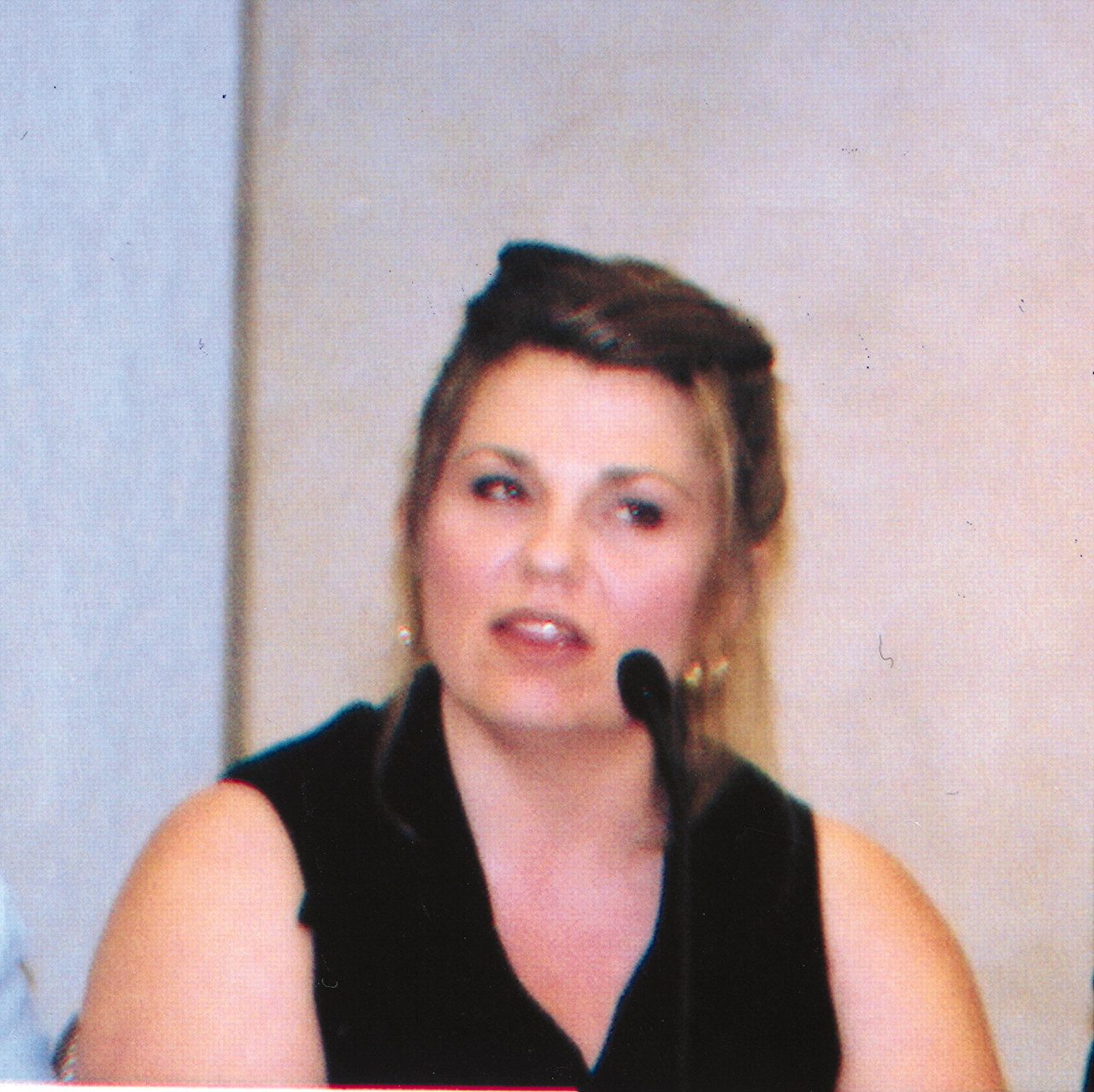James is a 12-year-old boy who has spent half of his life in institutions. He has been rejected by his father, sexually abused by a cousin, and abandoned by the mental health system. Tracy Marasco, his mother, endured similar trauma as a youngster and now fights to keep her son out of a mental hospital, where she fears he will be more likely to be restrained than helped.
Their story is captured in a new documentary film, “If I Could,” which the filmmakers hope will spur a national crusade to improve mental health care for youth in this country.
Patti O. White produced and directed “If I Could,” with her film company, Filmsters Inc., based in Annapolis, Md., and Los Angeles.
A diverse group of legislators, psychiatrists, mental health professionals, students, and family advocates attended a screening of the award-winning film at the Center for Strategic and International Studies in Washington, D.C., in May and contributed to a lively panel discussion after the screening.
The film opens with Tracy Marasco driving her son, James, from their home in Denver to a treatment program in Oklahoma. This is one of many journeys they have made together in search of help. “We have been in and out of treatment centers, hospitals, here and there,” Marasco says. “James is well on his way to juvenile lockups. I’m very scared that he is going to commit a very serious crime.”
She has reason to fear the worst, for in addition to the fact that her oldest son explodes in fits of rage with some regularity, she recently discovered James with a loaded handgun. It is then that Marasco decides to deliver him to the program that made such a profound difference in her life when she was James’s age—Vision Quest.
Wagon Train
“We are giving you the right and responsibility to enter your own adulthood without anyone in control of you but yourselves!”, Vision Quest founder Bob Burton yells to a group of adolescents, many of whom have been court-ordered into his alternative treatment program. “We are going to confront your weaknesses and promote your strengths.”
It is 1979, and a defiant 14-year-old Tracy Marasco is among Burton’s charges. A judge has ordered her to Vision Quest’s Wagon Train program after a series of arrests for prostitution, weapon possession, and theft. Marasco’s long journey to recovery begins on the horse-drawn covered wagon that takes her from the Arizona desert, over the Colorado Rockies, and back home to Denver. Marasco’s journey is chronicled in a CBS documentary, “The Wagon Train Trial,” produced by filmmaker Patti O. White.
White, who also produced “If I Could,” dug through CBS’s vaults to find the 1980 documentary and juxtaposed certain scenes featuring a young Tracy Marasco interacting with Burton with scenes from “If I Could.”
As an adult, Marasco sheds some light on the role Burton played during her stint at Vision Quest.“Bob was the stop sign in my life,” recalls Marasco. “I never had any stop signs in my life until I met Bob. He gave me the opportunity to be a kid—to look to a parent for direction like a kid.”
Burton founded Vision Quest in 1973 after growing disillusioned with his work as a corrections officer in the juvenile justice system. He created Vision Quest to offer youth an alternative to incarceration. He named his program after a rite of passage practiced by the Plains Indians, who send their adolescents into the wilderness on a “vision quest” to enable them to overcome the challenges found in nature and discover a view of their futures.
The philosophy of Burton’s program isn’t much different. In Vision Quest, youth engage in rigorous outdoor activity while working closely with counselors who serve as parent figures.
Cycle of Abuse
In the film, James tells Burton about what it was like to witness physical abuse between his parents, to watch his father walk away from the family, and to shuffle around juvenile detention centers with metal shackles around his ankles and waist. After encouragement from Burton, James talks about an incident that occurred when he was 4 that led to his first psychiatric treatment—sexual abuse by his father’s cousin. When he does mention the incident, James refers to himself in the third person.
“The effects of trauma are written all over this kid,” Burton says of James. “It is very unsettling to see how high the wall of secrecy is.”
Together, Marasco and Burton decide that it might help James to see footage of “The Wagon Train Trial” so that he might better understand his problems in the context of a troubled family history and see how his mother eventually triumphed over her problems. Marasco was a single mother of four who supported her family while working part time and finishing a degree at the University of Colorado.
“I’m freaked out about letting James see what happened to me as a teenager,” Tracy says, “but I think he really needs to know the truth.”
While watching the 1980 documentary, James learns that his mother experienced many of the same hardships as a youngster. He also hears for the first time that his mother is an incest survivor and that his grandfather had abused her sexually and eventually forced her into prostitution.
Mental Health Roller Coaster
James thrives on the structure, adventure, and highly individualized attention he receives in various programs at Vision Quest. After spending several months there, he becomes more self-confident and less angry, and develops a number of important relationships with staff and peers.
After leaving Vision Quest, however, James flounders. His county’s mental health services cannot meet his needs, and he begins to revert to the troubled existence he led before entering Vision Quest. At one point, he is expelled from school for cursing and sits listlessly at home for nine weeks. Marasco says she contacted the county mental health system repeatedly during this time, but no one returned her calls.
She then re-enrolls James in Vision Quest, and he ends up in a specialized program for traumatized adolescents. There, he undergoes intensive individual and family therapy, which leads to significant improvement in his mental health.
The film ends on a positive note. As James graduates from Vision Quest, all smiles, his mother and Burton look on with pride. James is once again on the road to recovery.
Unfortunately, James’s life took yet another downward spiral after the cameras stopped rolling. ▪

